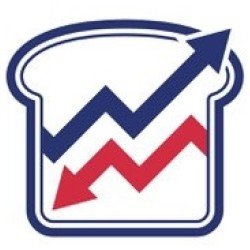Credit card debt is crippling U.S. economy – Here is how | Cryptopolitan
As the U.S. economy navigates through the choppy waters of recovery and growth, a significant anchor seems to be dragging it down: credit card debt. With the convenience and almost essential nature of credit cards in today’s digital world, it’s no surprise that many Americans find themselves in a whirlpool of debt. This isn’t just a problem for the individuals facing high interest rates and mounting bills; it’s a concern that ripples through the entire economy.
Credit card debt is more than just numbers on a bank statement; it’s a cycle that can stifle consumer spending, reduce savings, and limit financial freedom. When people are burdened by debt, they’re less likely to spend money on non-essential goods and services, which in turn affects businesses and the overall economy. Moreover, the high interest rates associated with credit card debt can lead to a situation where individuals are paying off interest rather than the principal amount, making it a seemingly endless cycle.
The impact of credit card debt extends beyond individual financial health to affect the broader economy. High levels of debt can lead to reduced consumer spending, which is a critical driver of economic growth. Additionally, when a significant portion of the population is focused on debt repayment, there’s less capital available for investments in the stock market, real estate, or starting new businesses. This can slow down economic innovation and growth, creating a more cautious and less dynamic economy.
However, it’s not all doom and gloom. Awareness and education about financial management can play a crucial role in breaking the cycle of credit card debt. By understanding how to use credit cards responsibly, budget effectively, and save for the future, individuals can navigate their way to financial stability. This, in turn, can lead to a healthier economy with more robust consumer spending, investment, and innovation.
For high school and college students, this scenario underscores the importance of financial literacy. Learning to manage finances effectively from a young age can help prevent the pitfalls of credit card debt and contribute to a more stable and prosperous economic future………..![]() [read more]
[read more]
Rising Dough
 Consider the role of financial literacy in preventing credit card debt. How might increased awareness and education about personal finance management among young adults impact the broader U.S. economy?
Consider the role of financial literacy in preventing credit card debt. How might increased awareness and education about personal finance management among young adults impact the broader U.S. economy?
*Click on the “Full Loaf” icon to read the full article! After you read the full article, let us know your thoughts.
Share this content:













In the US specifically financial education would completely change our society as there are o many tons of American in so much crimpling debt. with proper education our economy could be start growing at a rapid pace because so many people would have better credit and would then be eligible to get loans for houses and vehicles but since we don’t in reality its the opposite in the US.
With proper education on a responsibility of a credit card can do way more good in many of people having debt. Simply having awareness of the debt you can cause is life changing.
Well the young adults are the foundation of our future. Creating healthy habits now will create a healthy and stable economy in the future.
Education on financial literacy is imperative to the prevention of further damage to the U.S. economy due to credit card debt. By simply educating people on how to manage and understand their finances, they would be less likely to incur such debts so mindlessly.
the risk of not having that awareness to keep up with something that can impact your life drastically is a hazard, a very real hazard this day in age, but with education on the affects and how to manage your personal finances especially for the younger generation is crucial so they don’t end up having to pay something off and block them from potential investments, wants, or business plans. We are here to teach this new generation let’s not let them make the same mistakes.